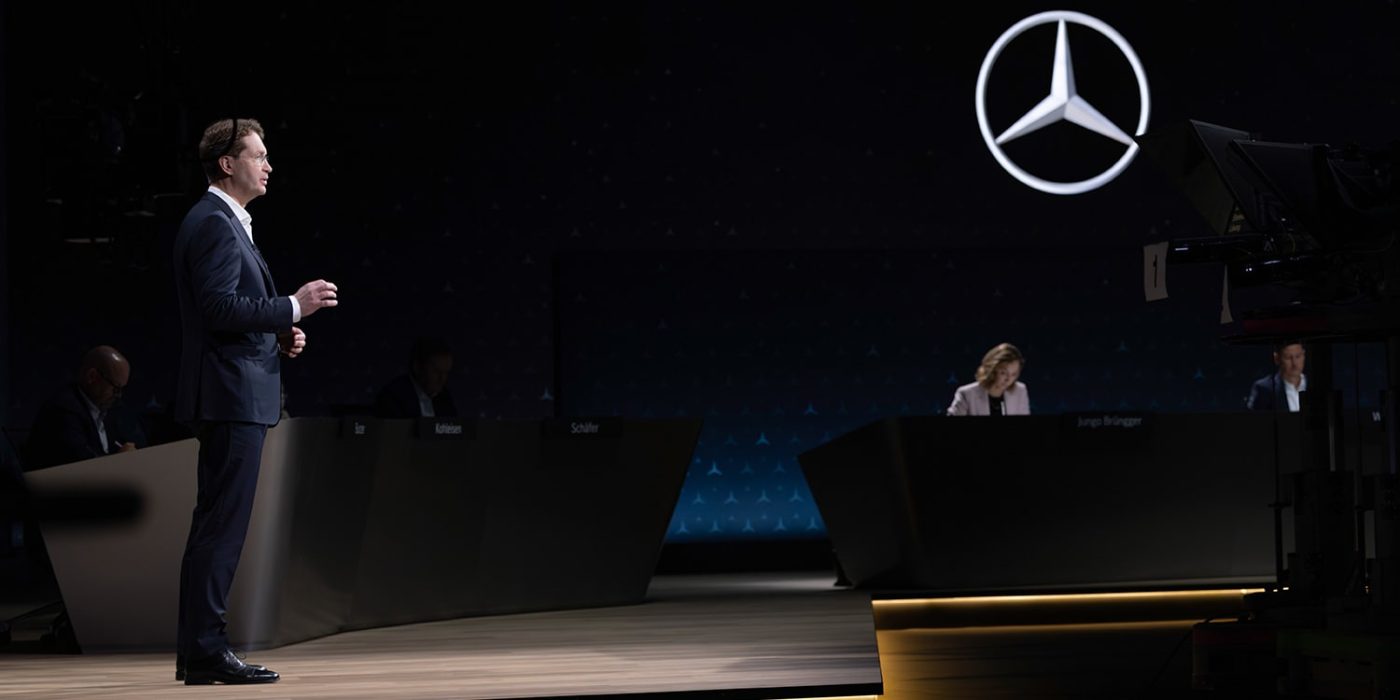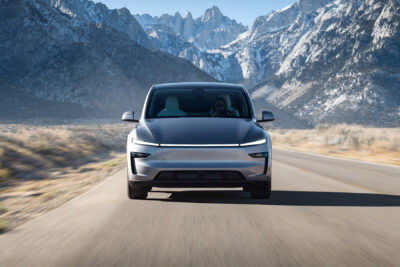Mercedes pushes back interim electrification goals by a year
Mercedes-Benz has pushed back an interim goal on its way to becoming an electric car manufacturer. Specifically, it is about the target set almost two years ago that electric cars and plug-in hybrids should account for half of sales in 2025.
The manufacturer wants to continue to reach this interim goal by the middle of the decade, but: “As of today, the middle of the decade means 2026,” said Mercedes CEO Ola Källenius at the group’s annual general meeting on Wednesday, according to the “Handelsblatt”. Mercedes-Benz is thus postponing the milestone by at least one year.
When Mercedes changed its strategy from “Electric first” to “Electric only” in July 2021, this 50 per cent interim target was also issued. It said at the time: “Today’s confirmation of these targets is based on the following assumptions: a significantly higher xEV share of 50% in 2025 and a market scenario in which electric vehicles will have essentially replaced the internal combustion engine by the end of the decade.” Mercedes combines BEV and PHEV under the term “xEV” – the group had already discontinued the FCEV programme.
The background to the postponement is apparently, among other things, the sales figures for plug-in hybrids. In 2022, just under 63 per cent of xEV sales were still accounted for by hybrid-electric vehicles. However, since the 117,800 BEVs also include the electric Smarts and the number of Mercedes EQ BEVs is thus lower, the PHEV share for the Mercedes brand is still somewhat higher. Since PHEV sales have dropped by 14 per cent in the first quarter of 2023 and the situation is unlikely to improve (partly due to the end of the environmental bonus subsidy for plug-in hybrids in Germany), Mercedes planners see the interim target in jeopardy.
However, the battery-electric cars have not met all sales expectations either. In China, Mercedes had to lower the prices for the EQS and EQE, in some cases significantly, in order to increase sales figures – which will then probably be reflected in sales and profits. In addition, there are fears of reputational damage to Ola Källenius’ luxury strategy.
Sales for models like the EQC are also running far below plan. As the German business publication Handelsblatt writes, citing figures from data service provider Marklines, Mercedes has only been able to sell 64,000 units of the first EQ model since its market launch in 2019. Group sources say that such sales figures were planned per year, not over the life cycle. Production of the EQC in Bremen will cease in the course of the second quarter of 2023.
Despite the postponement of the interim goal to 2026, however, the target remains to become fully electric before the end of the decade “wherever market conditions permit”. But the company is likely to make use of this loophole, which Mercedes left open in 2021 when it announced its intention: Handelsblatt sees the update for the V8 engine M176 as an indication that Mercedes could stick to some combustion models in the USA and China even after 2030.
handelsblatt.com (in German)





1 Comment